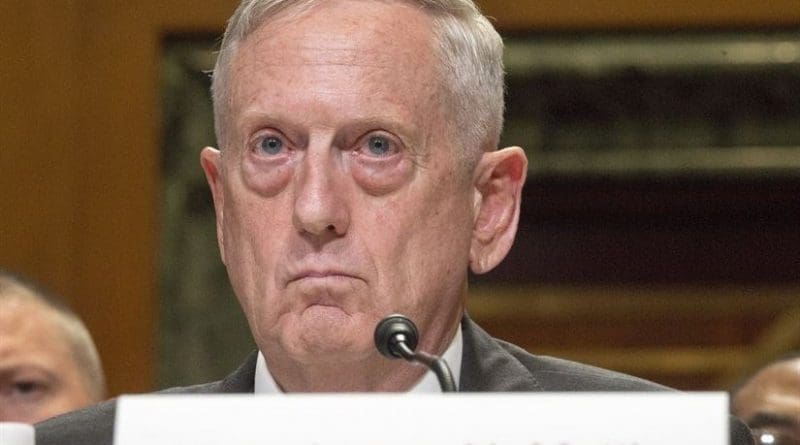Military Backs Up Diplomatic, Economic Tools Against North Korea, Mattis Says
By DoD News
By Jim Garamone
The United States military stands ready to provide options to President Donald J. Trump, but diplomatic and economic efforts remain the tools of choice to convince North Korea to stop its nuclear and missile programs, Defense Secretary Jim Mattis told reporters here today.
“The president’s been very clear, and secretary of state’s been very clear that we are leading with diplomatic and economic efforts,” Mattis said during an impromptu news conference in the Pentagon. “The military remains ready in accordance with our alliance with Japan, with Korea.”
The North Korean launch of an intercontinental ballistic missile on July 4 is a very serious escalation and provocation, Mattis said, and also an affront to the United Nations Security Council resolutions.
Diplomatic Effort
The secretary stressed that the effort against North Korea is purely diplomatically led. The weapons of choice are economic sanctions, but these will be buttressed by military capabilities. Secretary of State Rex Tillerson is the administration point man with regard to North Korea. “We stand ready to provide options if they are necessary,” Mattis said.
Diplomacy with regard to North Korea has not failed, Mattis said. He cited Army Gen. Vincent K. Brooks, the commander of U.S. Forces Korea, saying America and South Korea have exercised extreme self-restraint in avoiding war. He noted the shelling of South Korea’s Yeonpyeong Island in 2010, the sinking of a South Korean ship earlier that year and other provocations at sea, on land and in cyberspace. “Our self-restraint holds, and diplomatic efforts remain underway as we speak,” he said.
The United States is working with allies to influence North Korea. U.S. officials are also working with China – North Korea’s benefactor and largest trading partner – to place more pressure on North Korean leaders to stop the nuclear and missile programs.
Launch Analysis Continues
The secretary said the Defense Department is still analyzing intelligence from the North Korean launch. “It clearly had a booster, which was a new development on a previous missile,” he said.
Mattis said he was not surprised that North Korean leader Kim Jong Un launched the missile. “We assume these sorts of things from him,” the secretary said. “Right now that’s why we’re called … the sentinels for this country. We were on duty. … The radars were up and operating. We knew it as soon as he fired it that it had been fired — literally.”

